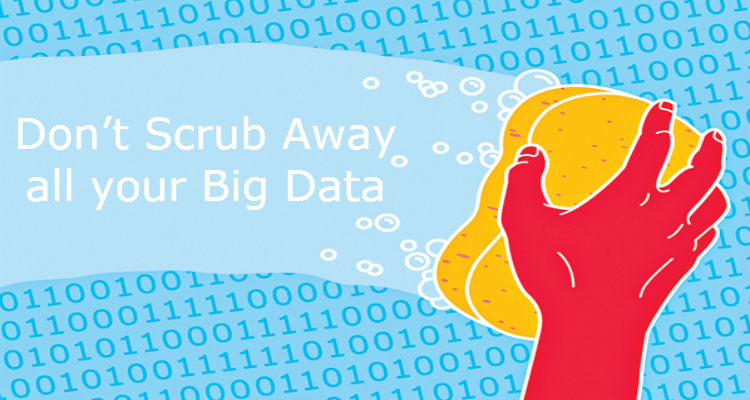As per a research, data scientists spend most of their time massaging data instead of mining or modeling it. By now, we clearly understand the advantage of big data analytic's such as it improves efficiency and enables to gain better insight. But what comes along with the benefits is a job that is extremely time-consuming and least enjoyable for data scientists, which is data cleansing.
Data scientists spend nearly 60% of their time on organizing and cleaning data. Until now, we've always been cleaning data completely because it enables to perform research and analysis more efficiently. However, some experts believe that cleaning up data is essential but overdoing it should be stopped. It is rather different approach to dealing with data than what you would actually find at a data warehousing industry.
Instead of getting rid of all the data, you can keep some of them as over cleaning should be avoided in the process of data cleansing no matter how counterintuitive it may seem. But what is exactly garbage data? For instance, if there's an obvious error in the set of data, don't let it all go.
Certain obvious errors such as not identifying an automation error can come up in the absence and absence of humans. Another form of bad data production is bad code and cleaning this bunch of bad data with significant bug is crucial. As per experts, you need to ensure to store garbage data away from production analytic store. Before clearing off everything, you would need to understand the source from where you're getting all the bad data and why that data is coming in so bad.
Data cleansing is certainly not a pleasing job to do, yet data scientists have to do this. Despite all the suggestion, it's best to practice data cleansing advices that come from the professionals and data cleansing world. But make sure to be very attentive when you deal with such massive amount of data. Bad data must definitely be identified and analyzed but don't let it damage your process of analysis. Set a dynamic data quality strategy for performing effective data analysis and cleansing.

